The first Annual (Gecko Press) was one of the highlights of the Christmas offer in 2016. So it was with shaky hands and much excitement we accepted an early copy of Annual 2 from co-editor Susan Paris for review. This year the book is presented by Annual Ink.
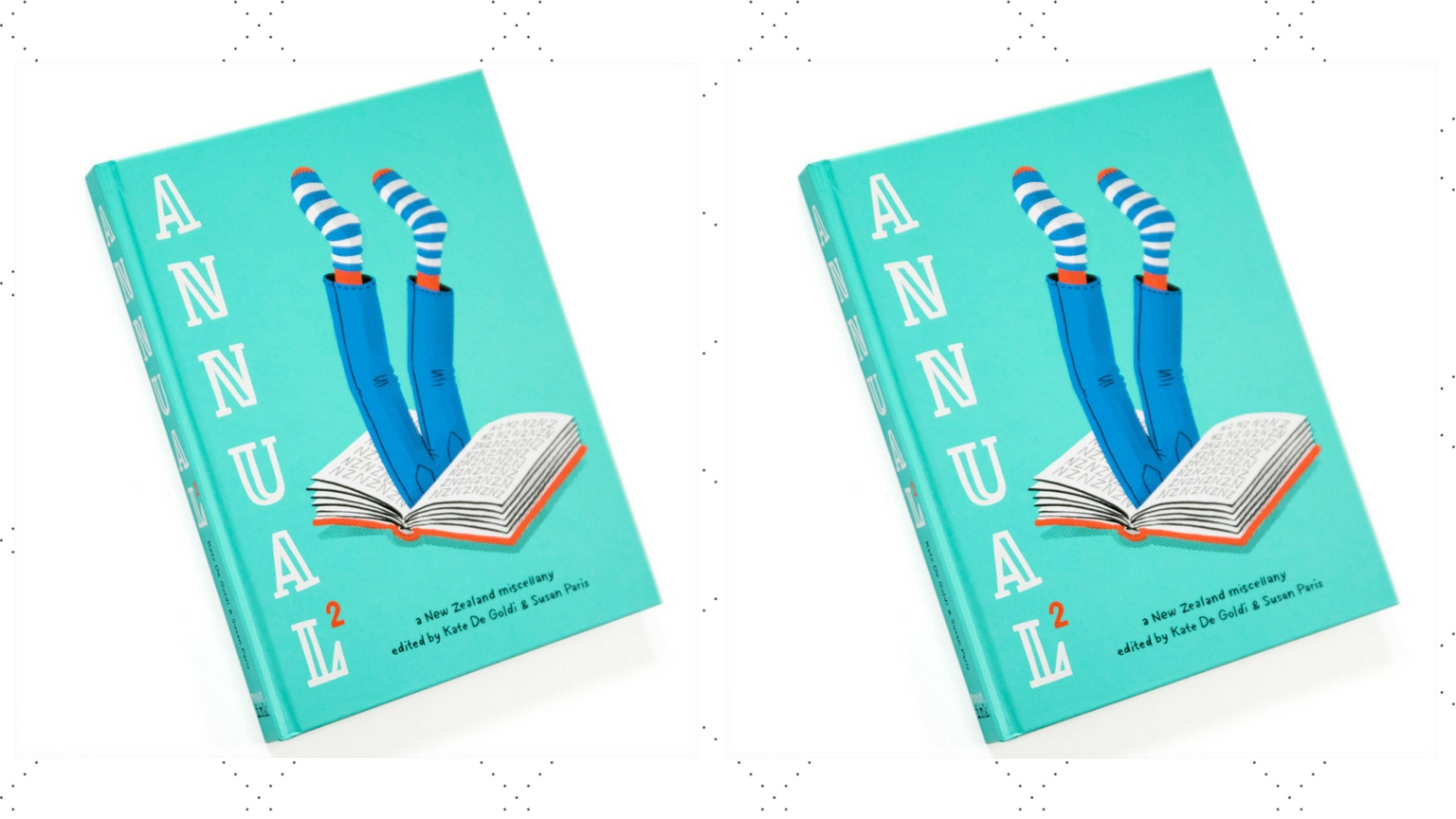
It’s here! Annual 2, home of the most intriguing selection of articles for middle-aged kids (you know, 8-13 year olds – and older) you could ever hope to find.
If you thought editors Kate De Goldi and Susan Paris had brought out the stars last year, this year is even more packed to the gunwales with legendary Kiwi authors. We have Bill Manhire, with one of the most hilarious pieces in the book, Kate Camp riffing in haiku, Lloyd Jones waxing lyrical about body-surfing, Ane Tonga and Rez Gardi helping us look at art, and Paul Thomas playing kid detective, alongside some favourites from the previous issue: James Brown, Renata Hopkins, and Gregory O’Brien.
Last year I struggled to do justice to the glory of Annual, and this year is much the same. So I’ve resorted to a list of reasons I love Annual 2, accompanied by micro-reviews of some of the articles and stories.
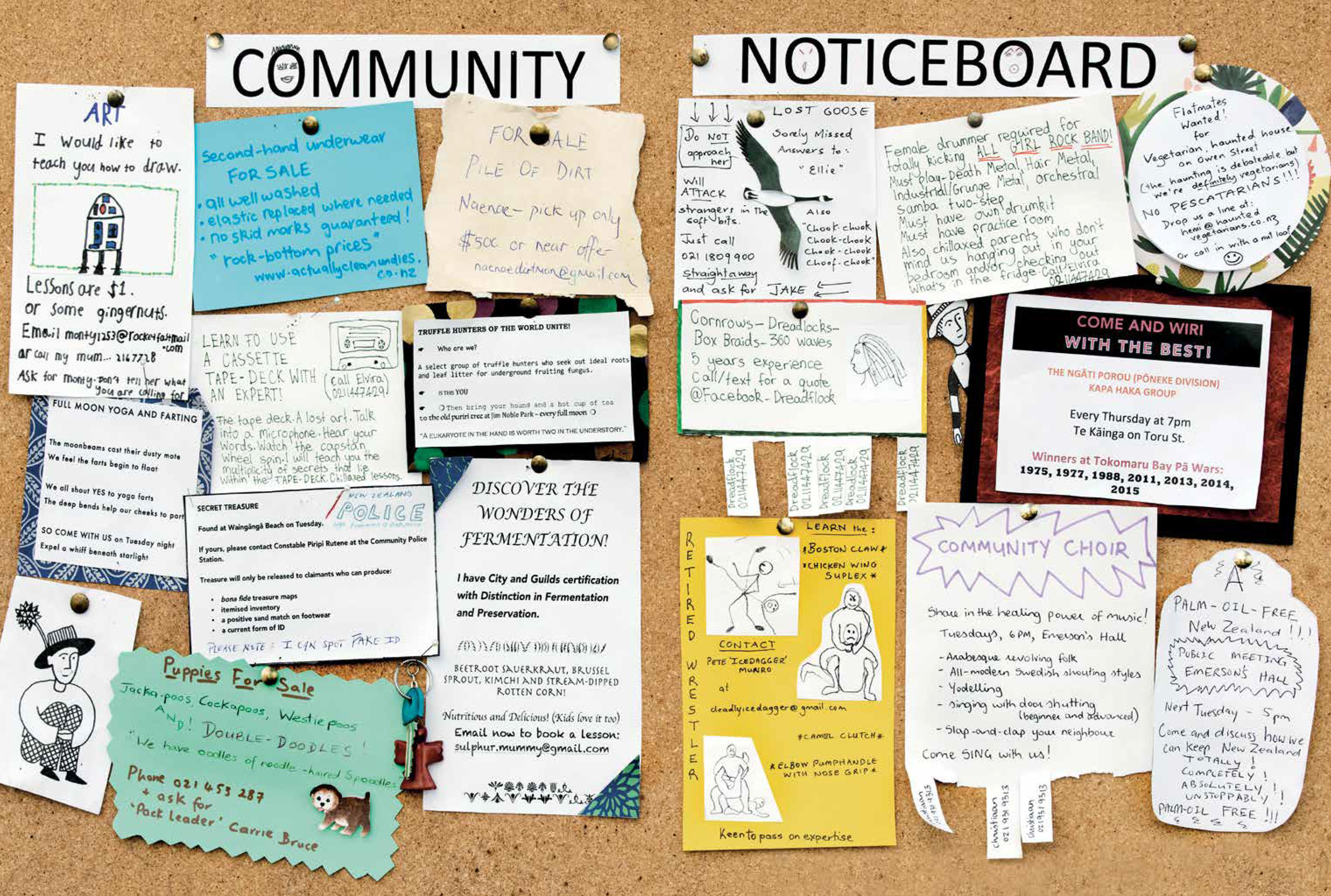
1. fnplfnp, by Bill Manhire. This is a slow-burn story that that becomes funnier and funnier as it carries on, as the dentist (vampire?) pontificates on what he wanted to be as a child when he grew up, gets our poor frozen-mouthed patient to guess his dog’s name, and ably carries on a two-person conversation alone.
2. Conversation Games, by Sophie Rea, is a delightful piece of advice masquerading as a collection of tall tales, the type that the whole family has memorised. Mum digging a road for a tourist bus she is on, a toddler locking her family outside while on holiday. As it carries on though, we learn how to carry a conversation – we learn Sophie’s family’s ‘Dinner Game’.‘Different people + good questions = a range of stories = different ways of looking at things.’
3. Community Noticeboard, by Michael Petherick. Take a common noticeboard at any supermarket, and you have the beginning and end of many stories. This is a piece of multi-media genius, showing email threads, text trails and more, as mutual benefits connect our noticeboard users. My personal favourite is the appeal by sauerkraut chef ‘sulphur mummy’ to outdoor fart yoga business ‘whiff’ – the yoga ad says ‘We all shout YES to yoga farts / The deep bends help our cheeks to part.’
4. GISELLE! Oh how I adore Giselle Clarkson’s work, and Common Household Biscuits & Slices in New Zealand complete with Latin scientific names is hilarious and works as an excellent family quiz. But our family favourite is missing! Where is the Raspberry Slice, Giselle? Huh?!
5. The New Late Works of Mozart, by David Larsen. What if our modern assumption that our intelligence has increased with our use of technology is dead wrong? In Larsen’s tale, historical characters are a LOT smarter than Bill & Ted assumed in their early 90s adventures into the past. Larsen has taken to children’s writing like a duck to water, and I hope to see more soon.
6. Docking Season, by Jonathan King. The Americans are coming to visit the Kiwi space station, while a girl helps a ewe birth a lamb. King’s use of jargon and colloquialism to create story is genius. This story is a multi-faceted gem about what really matters. And it’s just so Kiwi.
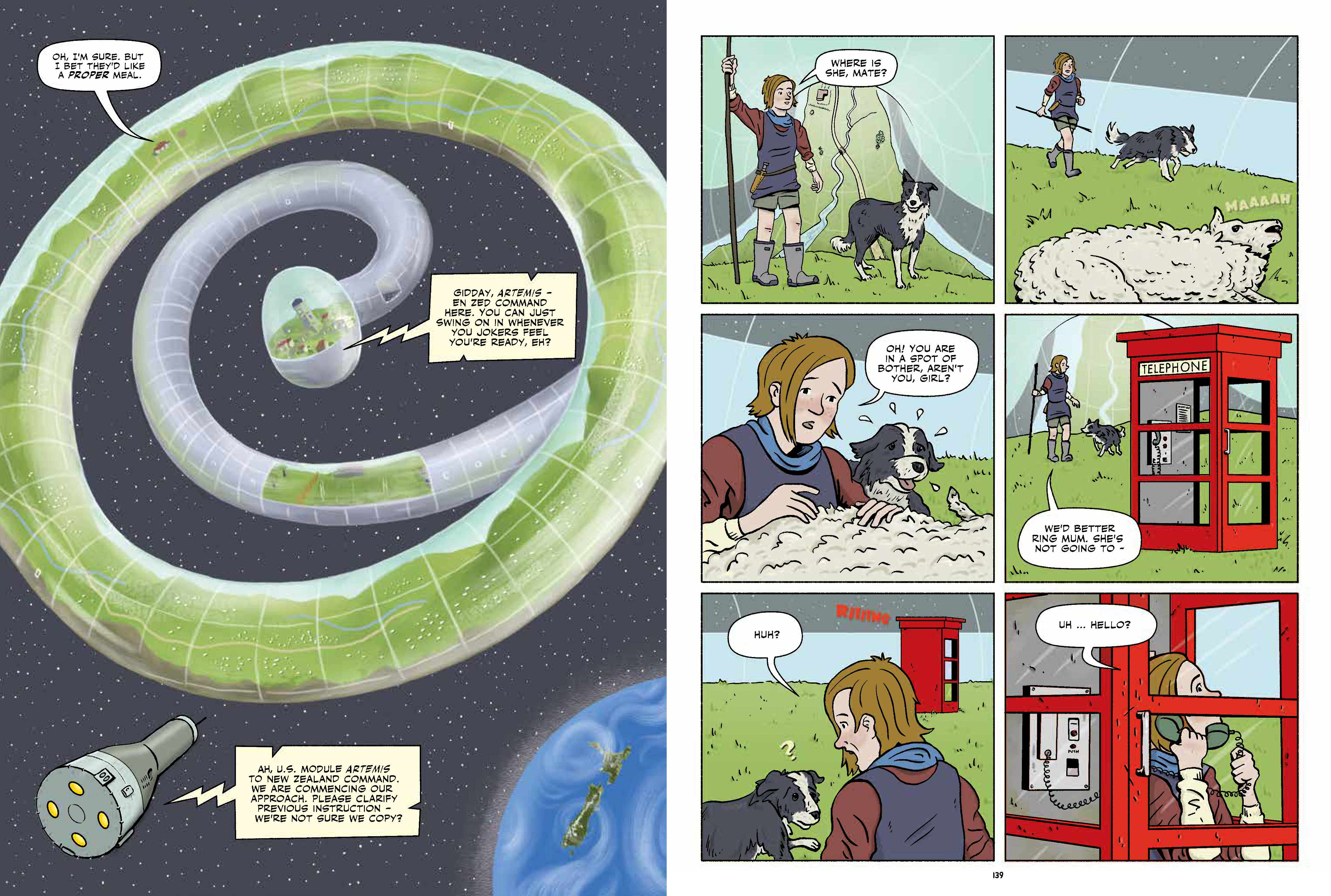
7. Blended Families, by Susan Paris. My six-year-old is obsessed with creating his own board games, so the first thing we did was play Blended Families, in which each instruction on the playing board relates to an experience had by the child living between two familes. He won (by about half a playing board), so he’s a fan, and got to learn a lot about what some of his classmates experience week-to-week in the process.
8. Garage Sale, a screeplay by Steph Matuku. This piece sees a Summer-long competition between friends turn into a great recommendation for sibling harmony. It’s snappy and sophisticated, and my six-year-old enjoyed enacting it with us. Perhaps a summer play for your child and their friends to film for fun?
9. Aotearoa Out of Time, by Gavin Mouldey. Mouldey proved he was a master of visual storytelling in the previous Annual, and this continues his reputation just fine, in my opinion. Time has gone skew-whiff, and we need to help capture the runaway historical figures. I just hope that annualannual.com has a page of answers – which of the characters are out of time?
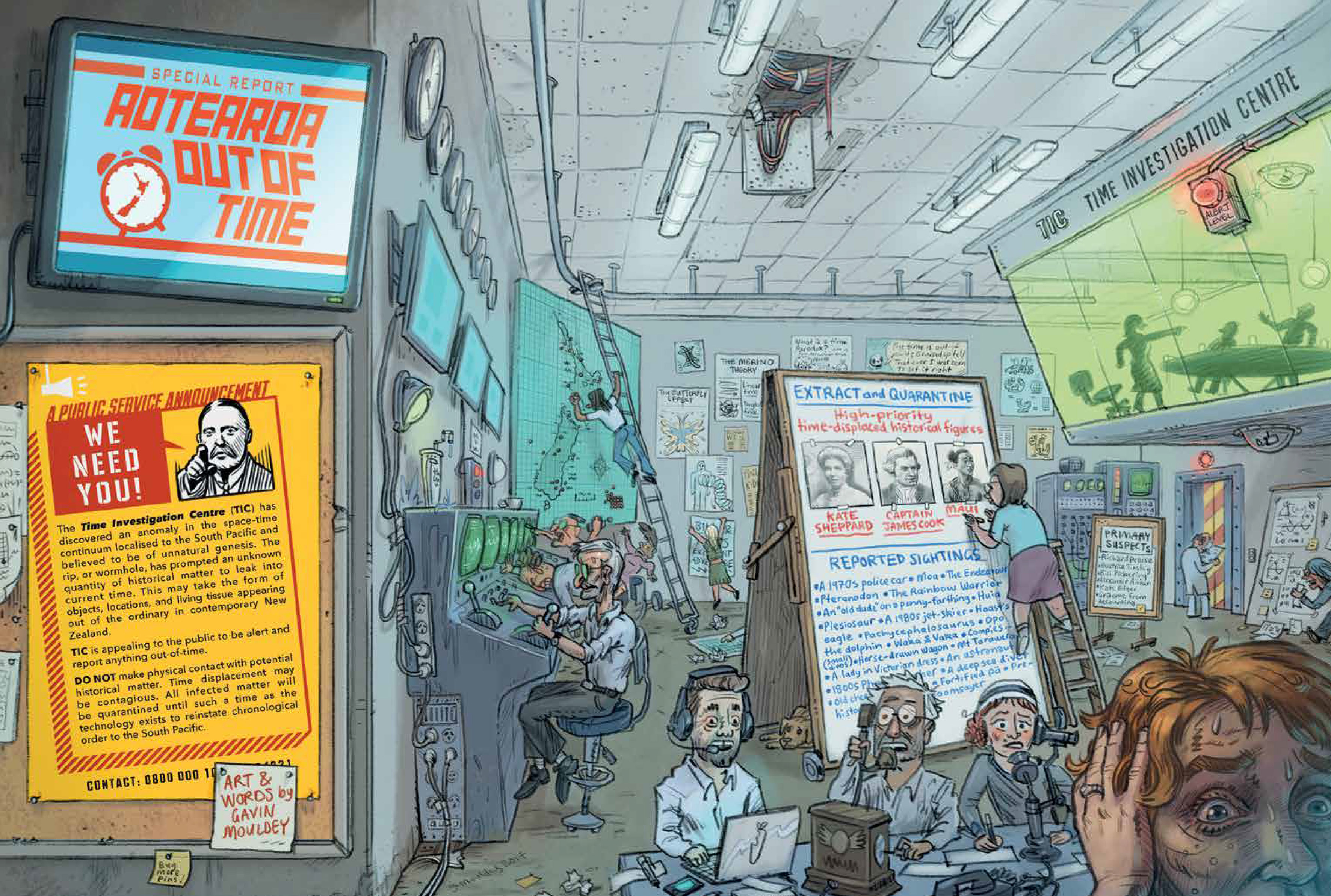
10. Phantom Riders, by Sarah Johnson. Our heroine doesn’t like skating around the other kids, because she hasn’t sorted out her centre of gravity (she thinks her bum’s too big). But when she looks at the skate park at night, she spots a flicker… This is a wonderful story of a connection between young and old, with a few neat life lessons along the way.
Beyond these hits for me, this year’s selection feels like it pitches to older kids than the previous Annual, with several pieces that I thought better suited to those in their early teens. A good example of this is Melinda Arkle’s fine piece of ironic writing, Never Say Goodbye: The Art of Taxidermy. My sense of irony was not well-developed as a child, and it is of the type that I find difficult to digest even now as an adult. It comes perilously close to taking the mickey out of the reader: something I think a teenage audience will appreciate, but not younger readers.
Other pieces that carry the age range further include a graphic treatment of NZ classic The Keeper, by Barry Faville and illustrated by Henry Christian-Slane and Lloyd Jones’ body-surfing article (this is a bit like Bernard Beckett’s mathematics article in the previous Annual). Being carried in Jones’ head is a privilege.
The selection is beautifully curated, ensuring that no matter where your book falls open (as my copy had belonged to one of the editors, there were plenty of well-loved pages), you are bound to find something that intrigues you. Well done to De Goldi and Paris for going it alone this year, and making such a wonderful piece of work. Go and grab your copy today!
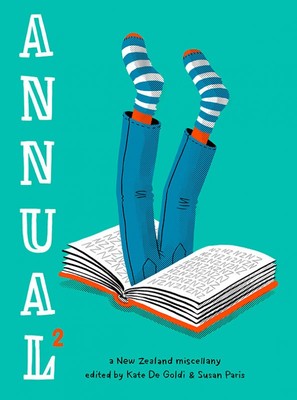

Sarah Forster has worked in the New Zealand book industry for 15 years, in roles promoting Aotearoa’s best authors and books. She has a Diploma in Publishing from Whitireia Polytechnic, and a BA (Hons) in History and Philosophy from the University of Otago. She was born in Winton, grew up in Westport, and lives in Wellington. She was a judge of the New Zealand Book Awards for Children and Young Adults in 2017. Her day job is as a Senior Communications Advisor—Content for Te Herenga Waka—Victoria University of Wellington.



